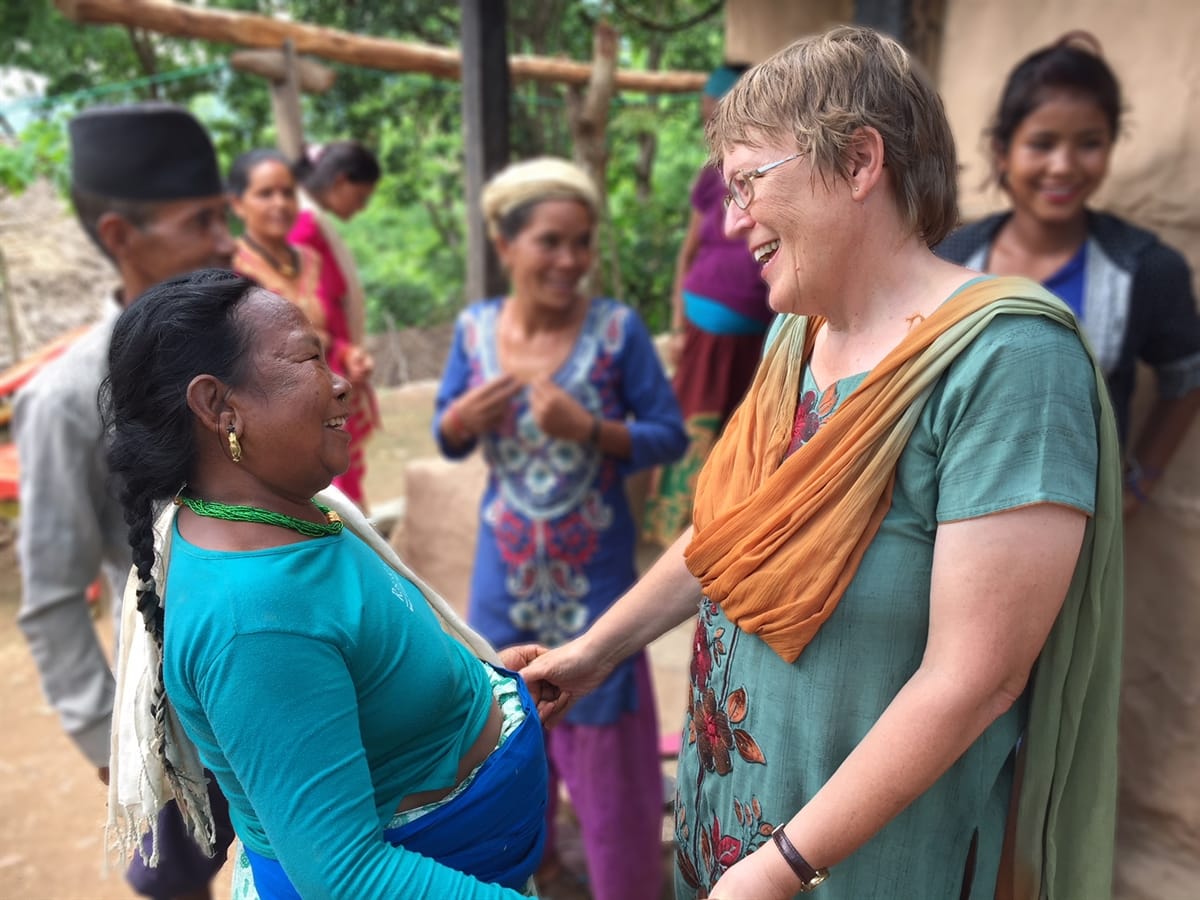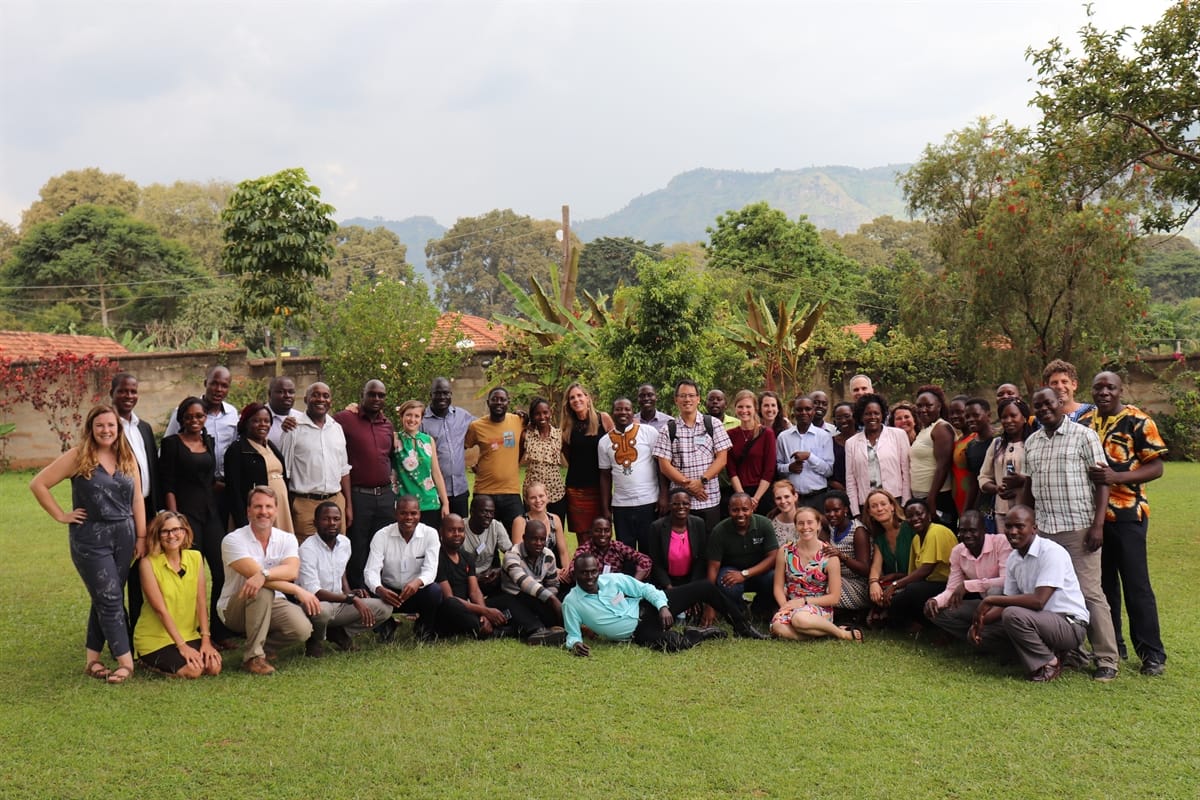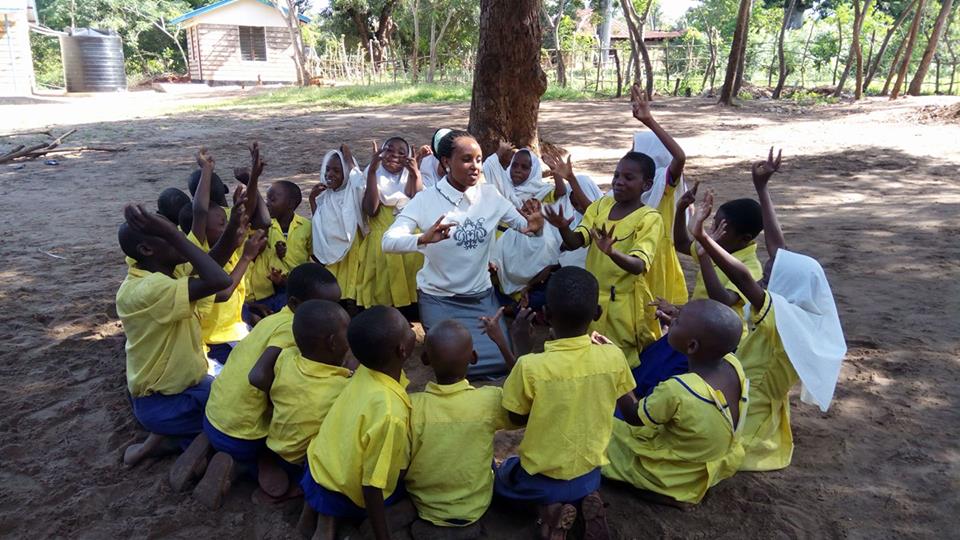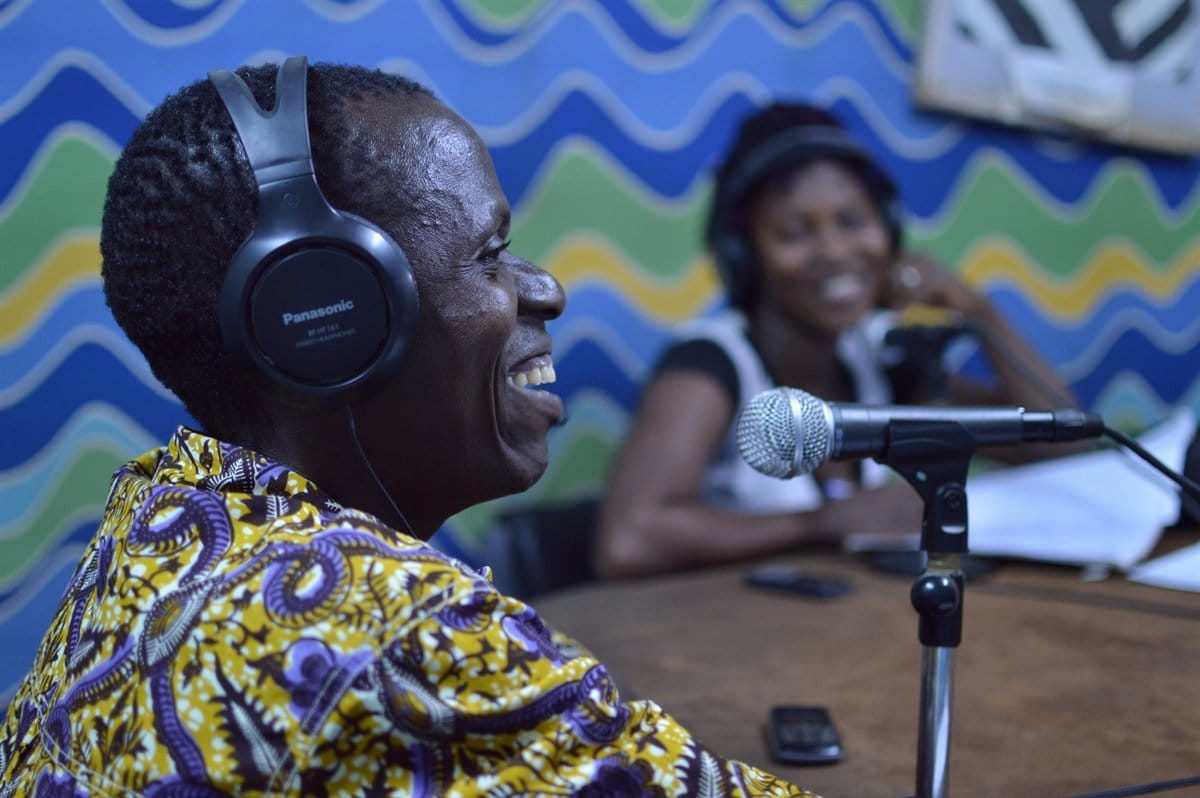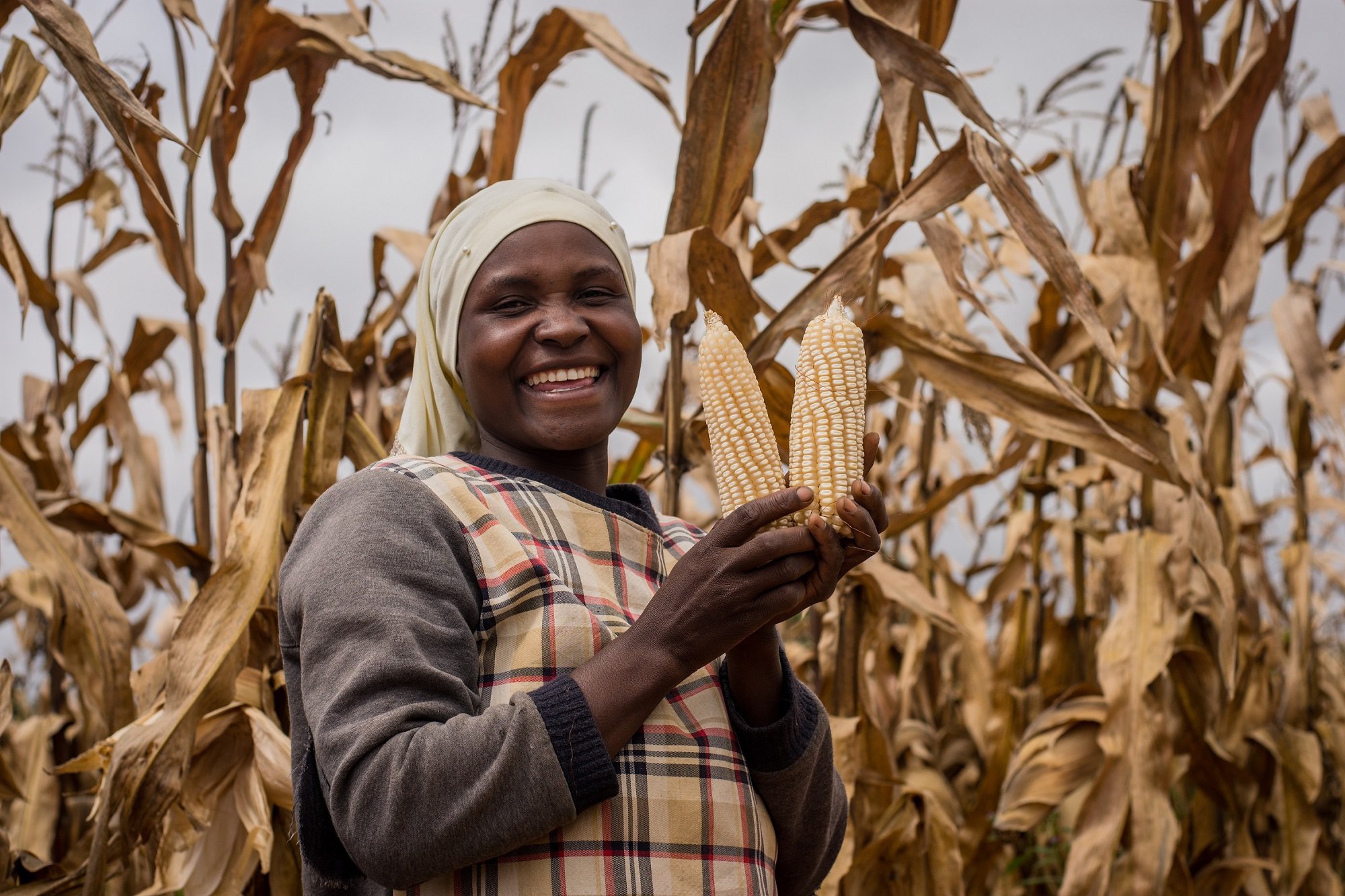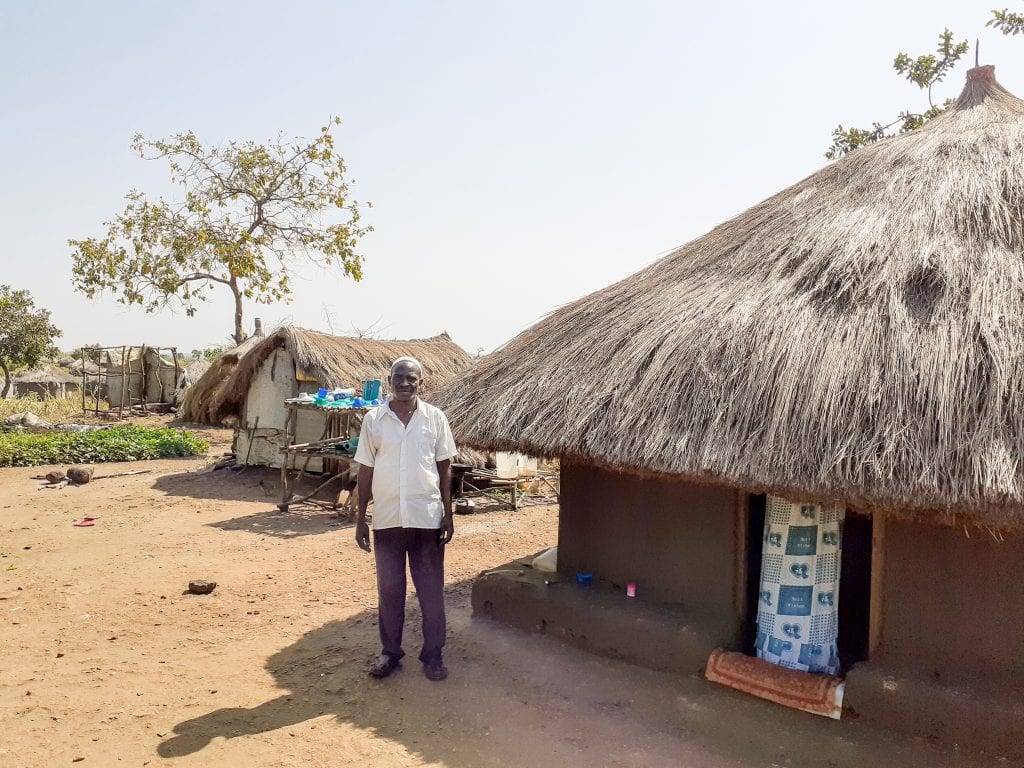By: Lindsey Pollaczek, VP of Programs at Fistula Foundation
“My mother gave me a second life, and so now, I just have to dance!”
Padma Thapa, age 65, began to dance and twirl, laughing as she threw her arms around Dr. Shirley Heywood, her “mother,” who gave her a second chance at life after repairing her obstetric fistula.
Earlier this year, I had the honor of meeting Padma at her home in rural Nepal. I was visiting with International Nepal Fellowship (INF), one of Fistula Foundation’s key partners in the country.
The group sharing a meal of dal bhat
Dr. Shirley, a passionate fistula surgeon who works with INF, was traveling with us—and Padma’s face lit up as soon as she saw her. Right away, I knew I was in for a special visit.
Padma is an incredibly resilient Nepalese woman who lived with fistula for forty years. She developed the injury after giving birth at home. In the 1970s, there simply were no healthcare services available for her—no antenatal care, no rural health outpost, no skilled birth attendants. And so, her only option was to deliver at home, alone. She labored for seven tortuous days. In the end, Padma was left with a stillborn baby and uncontrollable leaking of urine.
Her husband, Sahabir, is a deeply compassionate and loyal man, who looked after her and stood by her through and through, even though they never managed to have children—a deeply stigmatizing situation in their rural society.
Padma successfully hid her injury for four decades. During that time, she never thought to tell anyone or seek help.
In 2014, Padma was participating in a women’s group meeting at her church. The ladies were invited to stay the night together in the church hall, sleeping next to one another. Padma refused, afraid to be so close to the others—she worried they would smell her incontinence and think badly of her.
Padma and her husband, Sabahir
She finally confessed her fears to a female community health volunteer (FCHV) at the church meeting. The FCHV had been trained by Fistula Foundation’s partner on the signs and symptoms of fistula, and recognized Padma’s condition right away. She reassured her that treatment was available.
Padma was referred to Surkhet, Nepal, where she underwent surgery at the Surkhet Fistula Center. The procedure was challenging, and she had a difficult recovery. Ultimately, the surgery was not successful, and Padma continued to leak urine.
For the next four years, Padma was afraid to return for a second procedure, even though doctors counseled her that a second operation may help her to become fully continent. Finally, after much prayer and reflection, Padma decided to try again, and returned to the hospital in 2018 for a follow-up surgery.
“I am so happy, happy, happy! And I am very fine now,” Padma said the day I visited her home, laughing and hugging Dr. Shirley. “I could not die now, because I have a second life. I am so thankful to Dr. Shirley, and so thankful to my husband who stood by me even though everyone asked why he didn’t take a second wife because we could not have children.”
She said she only wished could get back to work—Padma was tired of being idle, and wanted to take care of her goats and tend to the garden. Her loved ones, however, were advising her to go slowly as she recovered.
After finishing her story, Padma clapped her hands together and laughed enthusiastically. She was ready to start moving again, and asked if my travel companions and I were ready to eat. Padma and her family had prepared us dal bhat, a traditional Nepali meal of rice, lentils, and curried vegetables—and she didn’t want the rice to get cold!
We danced our way outside her house and sat down for a delicious and filling meal. My rice bowl was heaped higher and higher as the family laughed and teased me, prodding me to take more and more food.
I will remember my visit with Padma for a long time. It was a joyful occasion, a radiant reflection of a life renewed. Padma’s energy and brightened spirit is a poignant example that highlights the vital importance of Fistula Foundation’s work in Nepal, and our newly-expanded partnership with International Nepal Fellowship.
Together, we will continue to grow our fistula treatment capacity in Nepal—and most importantly, change the lives of even more women like Padma.
All photos by Lindsey Pollaczek
You can read more about Fistula Foundation here, view their wonderful new video here, and support their transformative work here.
